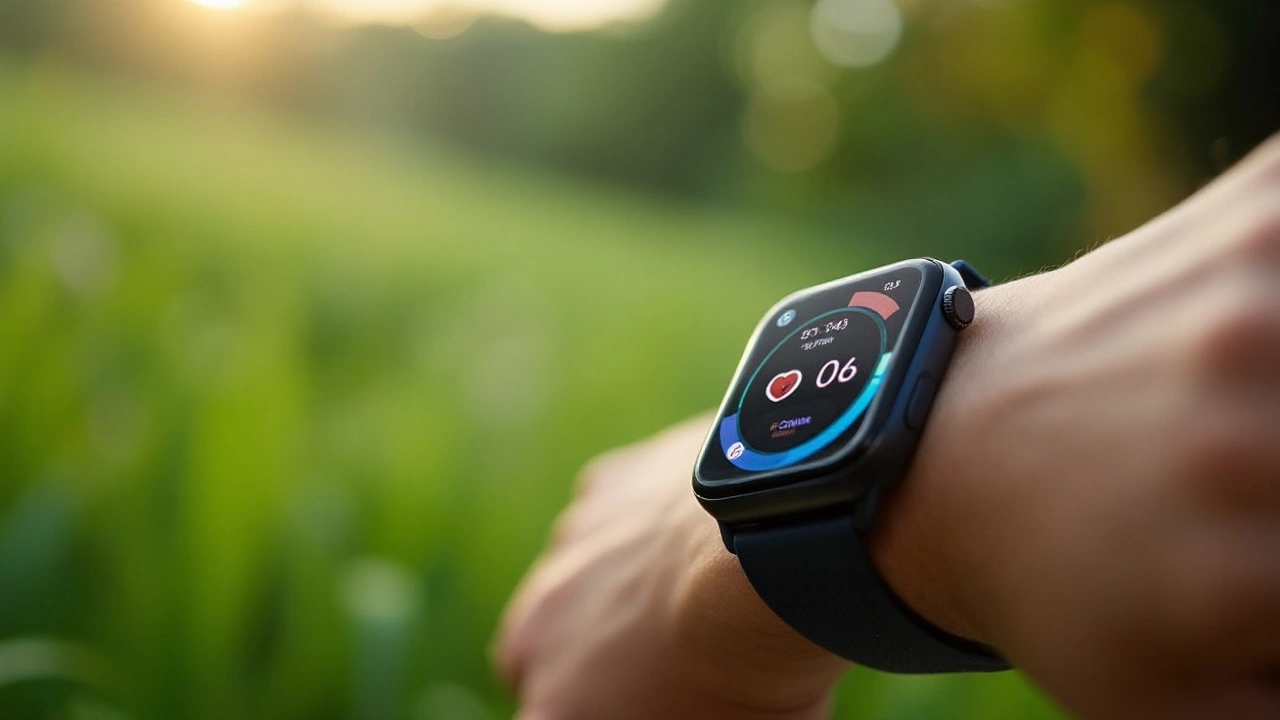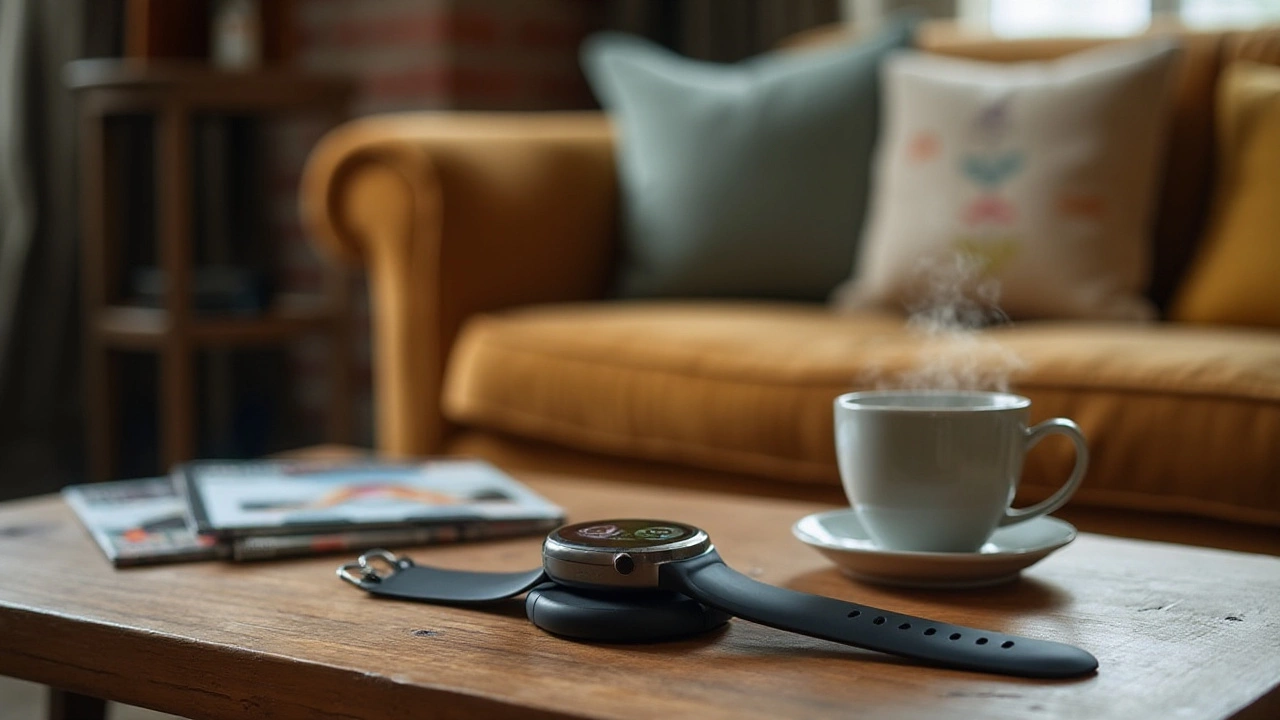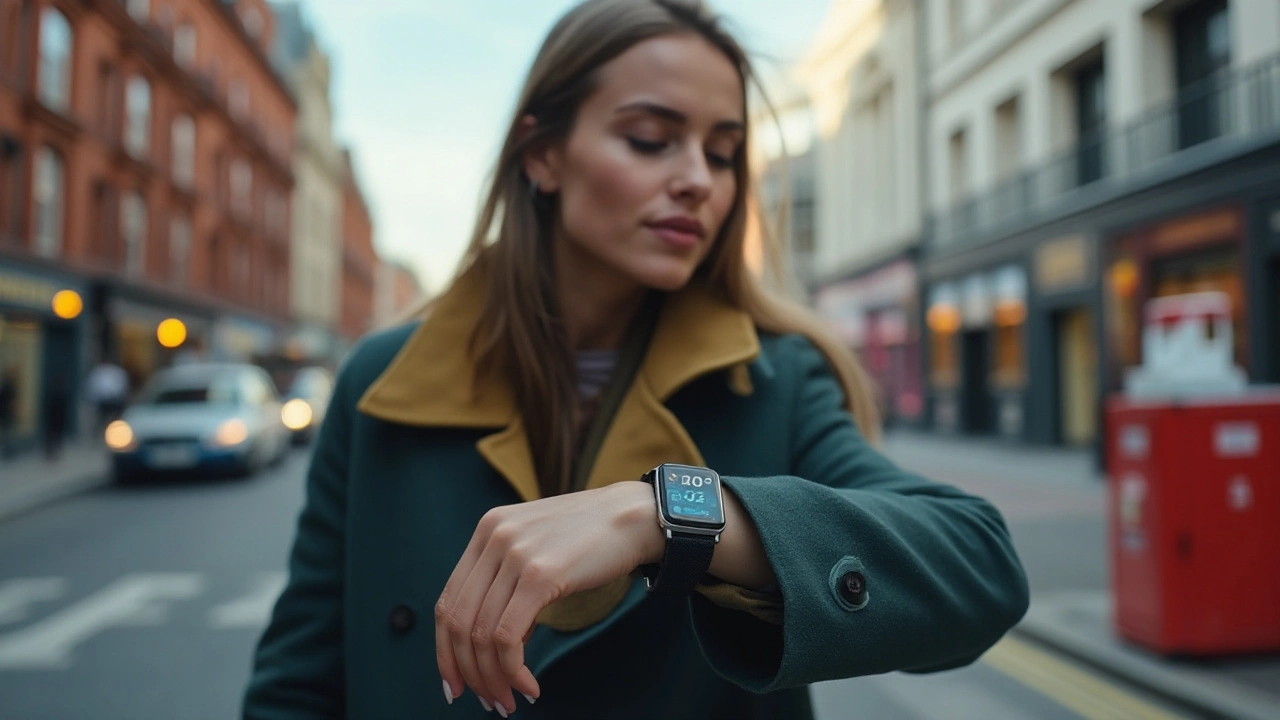
In the era of digital health, choosing the right watch for health monitoring is more than just a fashion decision—it's a gateway to better living. As technology advances, so does our ability to monitor and improve our health through the convenience of a wrist-worn device. These watches are no longer simple timekeepers; they're now packed with features that provide real-time insights into your well-being.
Health monitoring watches can track a variety of metrics, from heart rate and sleep quality to stress levels and even oxygen saturation. This powerful combination of sensors helps you stay informed about your body's daily performance, allowing you to take proactive steps towards better health. Whether you're an avid athlete or someone simply wanting to stay more active, these devices can be safely fitted into your routine to transform it into a healthier one.
With a range of options available, understanding what to look for in a health monitoring watch can seem daunting. It's important to consider the specific features that align with your personal health goals and lifestyle needs, ensuring you choose a device that not only keeps you accountable but also supports your journey toward a healthier life.
Choosing a health monitoring watch in today's vast tech market involves considering multiple factors, each playing a crucial role depending on individual needs and lifestyles. At the core, any high-quality watch should have accurate sensors capable of reading critical health metrics. Heart rate monitors, accelerometers for tracking fitness activities, and even GPS for outdoor enthusiasts are some of the staple features to consider. Think about what metrics align best with your lifestyle. Someone prioritizing cardiovascular health might value advanced heart rate analysis and recovery metrics, whereas another person focusing on general fitness could prioritize calorie tracking and step counting.
Sleep tracking is another vital feature. Many modern watches now offer detailed insights into sleep patterns and quality, providing not just the duration but also an analysis of sleep stages. A well-rested body is essential for maintaining a healthy immune system and cognitive functions. In fact, research has shown that good sleep can influence productivity and overall mental well-being. Thus, selecting a watch with comprehensive sleep tracking capabilities can be a game changer for many users.
The durability and comfort of the watch also cannot be overlooked. Since these devices are worn constantly, a lightweight design that's comfortable on the wrist is imperative. Opt for water-resistant and durable materials that can withstand daily wear and potential exposure to the elements. This ensures that your commitment to health monitoring doesn't falter due to potential damages to the watch.
Battery life remains a significant factor. A well-performing health monitoring watch should ideally offer extended battery life to cover extensive activity tracking without frequent recharges. Some models provide specialized modes that extend battery life further by disabling certain non-essential features, a boon for those involved in long-distance activities or expeditions. Health features are only useful if they can be relied upon, anytime and anywhere.
For those who love data insights, integration with apps and smartphones is vital. Look for models that seamlessly sync with your phone via apps, providing a more comprehensive view of your health over time, which helps in maintaining motivation and tracking progress. Another suggesting factor could be the inclusion of unique features like stress management tools or ECG apps, pushing the boundaries of wearable technology to offer more tailored health insights.
The progression of wearable technology is an exciting development in personalized healthcare, as noted by Dr. Jane Williams, a notable figure in digital health research. "These devices empower individuals by offering insights into their personal habits and health metrics that previously were hidden or required frequent medical checkups," she stated in a 2023 interview with HealthTech Magazine.
Finally, the user interface should be intuitive. It's essential to have a watch that doesn't come with a steep learning curve. The goal is to enhance your lifestyle with supportive technology, not complicate it. Ensure that the interface is user-friendly and includes customizable aspects to suit personal preferences, making it easy to navigate through various health data quickly.

In a world awash with technology, choosing the right health monitoring watch can be quite the task. Each model competes for prominence with an array of features designed to keep us on our toes and, more importantly, on top of our health. If you're looking at popular options today, several brands have set benchmarks for innovation and utility. Take the Apple Watch, for instance, which has carried the torch in smart technology, leading with its seamlessly integrated health features. The Apple Watch Series 9 is equipped with a blood oxygen sensor, ECG capability, and advanced sleep tracking, making it a pivotal choice for tech-savvy health enthusiasts.
Meanwhile, the Fitbit Sense adds deep meditation and stress-management tools to its repertoire, appealing to those wanting mental health support alongside physical tracking. This watch provides feedback not just on your steps or heart rate, but also on electrodermal activity to gauge stress levels. Wearers appreciate its ability to remind them to take breathers when life gets too hectic. Its sleek design merges functionality with fashion, earning accolades from various reviewers. In fact,
Consumer Reports highlights Fitbit Sense as "one of the most comprehensive health tools on one's wrist," emphasizing its focus on holistic wellness.
Another frontrunner, the Garmin Venu 2, boasts an astounding array of fitness tracker capabilities. Not only does it monitor various athletic activities with great precision, but it also provides personalized workout suggestions tailored to your fitness level. The watch's battery life is a bonus, allowing for continuous monitoring without frequent charges. Built for durability and style, the Garmin Venu 2 meets the needs of outdoor enthusiasts and urban dwellers alike.
When you're trying to decide between these options, a head-to-head feature comparison can help. Let's consider some metrics:
| Feature | Apple Watch Series 9 | Fitbit Sense | Garmin Venu 2 |
|---|---|---|---|
| Battery Life | 18 hours | 6+ days | 11 days |
| ECG | Yes | Yes | No |
| Built-in GPS | Yes | Yes | Yes |
| Sleep Tracking | Advanced | Advanced | Basic |
This table doesn't cover it all, but it does shed light on key differences that might make or break your decision. If battery life is your main concern, the Fitbit Sense and Garmin Venu 2 might take a lead. But if detailed sleep insights are what you seek, the Apple Watch might prove its worth. These watches are like having a mini healthcare assistant right on your wrist, offering insights that were once confined to an occasional visit to the doctor.

The adoption of health monitoring watches has fundamentally transformed how individuals engage with and understand their health. People are often motivated by numbers, and seeing real-time data on their wrist offers a tangible way to connect with one's physical state. These wearable technologies are more than passive trackers; they actively engage users by providing feedback, setting reminders, and even suggesting actionable steps toward better health. This interactivity turns goals into actions, making it easier for individuals to adopt and maintain healthier habits.
Many watches come equipped with features that track activities such as steps, heart rate, and sleep patterns. Knowing your daily movement can be a real eye-opener, often surprising users with how little—or how much—they actually move. The transparency offered by these devices helps promote physical activity by setting personalized goals tailored to one’s current health status and fitness level. Virtually all modern watches have integrated heart rate monitors, some even incorporating advanced heart health alerts that can detect irregularities. It’s like having a little guardian angel ensuring your heart maintains a steady beat.
The real magic, however, lies in how these technologies help foster behavioral change. Just like a trusted coach, many fitness trackers now offer insights and gentle nudges to keep you focused. For example, a reminder to stand up and stretch after sitting for too long or a suggestion to go for a walk when you've been idle is the gentle prompt many need in their busy lives. Users who previously found it challenging to maintain good health habits now have a daily companion encouraging them to reach their goals.
According to Dr. Sarah Kim, a leading expert in wearable technology, "The power of fitness trackers is their ability to turn small lifestyle changes into sustainable habits that significantly impact overall health."
Additionally, these watches offer an element of accountability that is hard to ignore. We all have that intrinsic drive to complete objectives once they've been set, and when you can visually see progress—or the lack thereof—it becomes a powerful motivator. Days where you meet step goals or improve sleep score feel rewarding, almost addictive in their positivity, encouraging repetitive behavior that results in lasting change.
Many devices now feature social components, allowing users to share achievements with friends or participate in friendly competitions. This social interaction injects an element of fun and community, making fitness less about the struggle and more about shared success. These watches not only track health but also help to validate dedication and effort—that sweet sense of accomplishment when goals are met inspires not just healthier living but a genuinely fulfilled life.
Finally, one can't overlook the importance of personalization in their ability to inspire better health practices. The data collected is tailored to reflect your unique physiology and lifestyle. Personalized insights mean more relevant and specific recommendations, ensuring the advice given is genuinely applicable. Users are thus empowered, taking direct control over their health, knowing each step they take is a step toward a better tomorrow.

Finding the perfect health monitoring watch can be the key to maintaining and improving your well-being. But with an abundance of options flooding the market, making a thoughtful choice requires a clear understanding of your individual health goals and daily habits. As wearable technology evolves, it increasingly caters to specific preferences, from the fashion-forward to the fitness enthusiast. It’s essential to start by assessing what you hope to achieve. Are you aiming to monitor your heart rate, improve your sleep quality, or simply want reminders to move more during your day?
One significant consideration is the battery life of the wearable. If you plan to use it extensively throughout the day with multiple tracking features engaged, such as GPS for your runs or constant heart rate monitoring, you’ll need a device with a robust battery. Some watches boast impressive longevity, serving you for days without requiring a charge, while others are best suited for those who don’t mind docking nightly.
Another aspect to consider when selecting a fitness tracker is its interface and ease of use. Today’s user interfaces are designed to be intuitive, yet some are undoubtedly more user-friendly than others. Consider whether you prefer a larger display that's touch-responsive or buttons that can be easily navigated during intense workouts. If your daily activities often include water-related exercises, look for a device with water resistance. Certain devices can even track swim metrics for those who love to swim laps.
Experts from the renowned Cleveland Clinic have emphasized, "Choosing a health monitor that's not too feature-heavy and feels comfortable for daily wear is vital to ensuring consistent usage."
Price is undoubtedly a factor as well, but it shouldn't be the sole determiner of your choice. Invest in a wearable that aligns with how you plan to use it daily. Some brands offer a range of models accommodating different budgets without sacrificing essential functions.
When making your decision, consider reading reviews, trying on different models if available, and asking for recommendations based on experiences. These steps can ensure you choose a wearable that seamlessly fits into your lifestyle and meets your health monitoring goals, enhancing the quality of your everyday life.